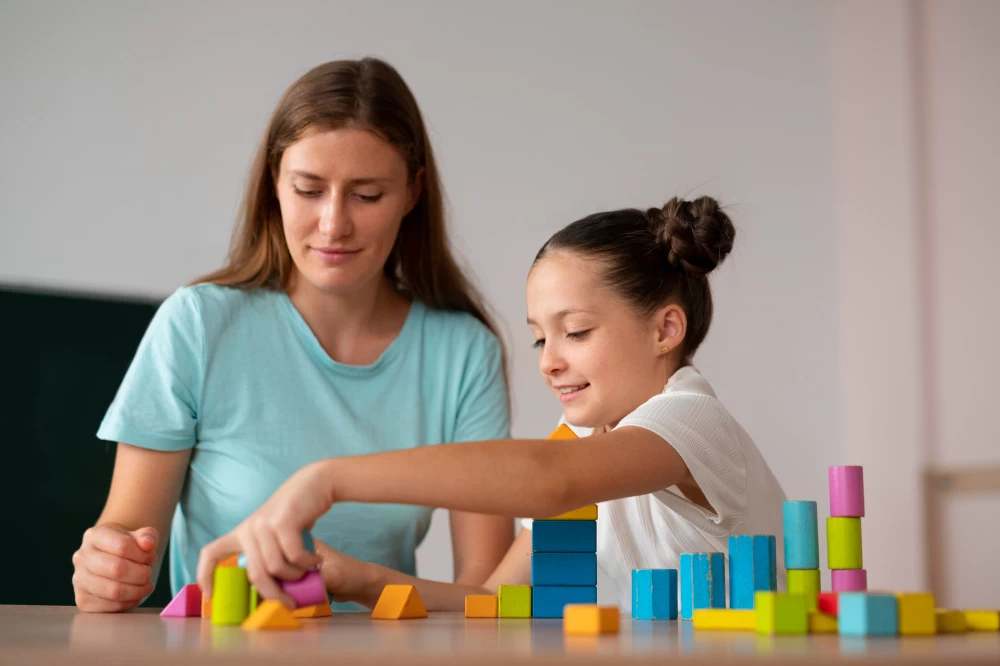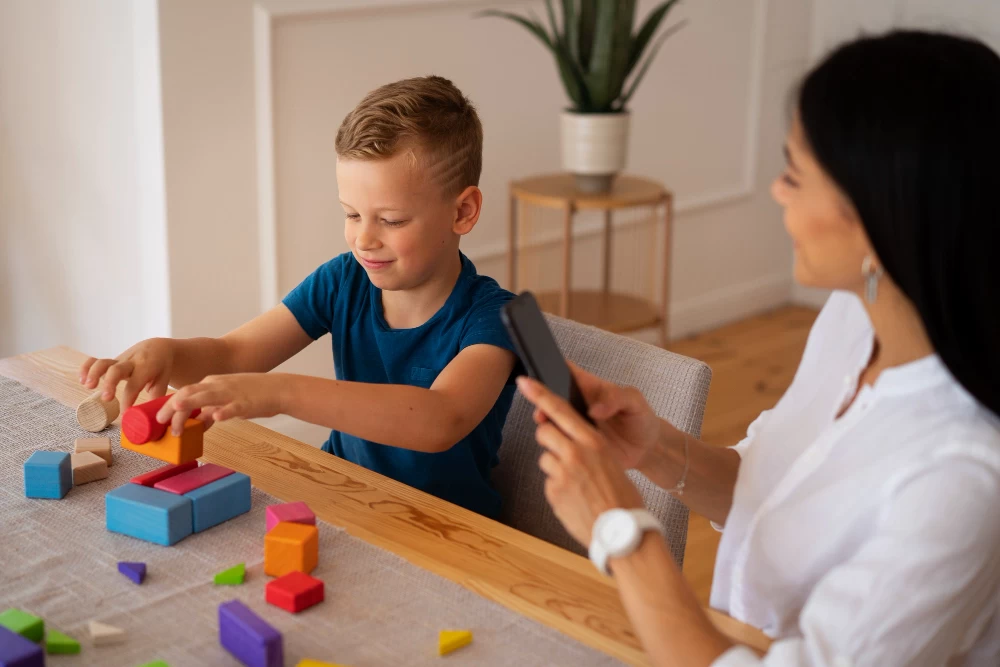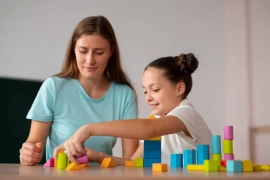
What is Play Therapy?
- What is Play Therapy?
- When to Apply for Play Therapy?
- Is Play Therapy Different from Daily Play?
- What Does Play Therapy Gain Children?
- What are the Requirements of Play Therapy?
Play therapy is a type of therapeutic intervention that uses play to help children express themselves and resolve emotional, behavioral, or mental health issues. The goal of play therapy is to provide a safe and supportive environment in which children can explore their feelings, experiences and behaviors through play.
In play therapy, the therapist may use a variety of toys, games, and activities to facilitate communication and interaction between the child and the therapist. This may include art materials, puppets, dolls and other toys that the child can use to express themselves.
Play therapy can be helpful for children with a wide range of challenges, including trauma, anxiety, depression, bereavement and loss, ADHD, and behavior problems. By participating in play therapy, children can improve their emotion regulation skills, improve their social skills, and gain insight into their emotions and behaviors.
When to Apply for Play Therapy?
Play therapy can be a useful form of therapy for children experiencing emotional or behavioral difficulties. Through play and the use of creative expression, it can help children express their feelings and experiences in a safe and supportive environment.
You may consider play therapy for your child if:
- Your child is struggling with emotional or behavioral issues such as anxiety, depression, aggression, or social difficulties.
- Your child has experienced a significant life event such as divorce, moving, or the loss of a loved one.
- Your child has a developmental delay or disability that affects their ability to communicate or socialize with others.
- Your child has experienced a trauma, such as abuse or neglect.
If you are unsure whether play therapy is the right approach for your child, it may be helpful to consult a mental health professional who specializes in working with children. They can help you determine if play therapy is suitable for your child's needs and provide guidance for next steps.
Is Play Therapy Different from Daily Play?
Yes, play therapy is different from daily play. Although both involve games, they serve different purposes and are run in different environments.
Daily play is an activity that children do naturally and is an important part of their development. Children use the game to explore their environment, develop their imagination and creativity, improve their social skills, and learn about themselves and the world around them. Casual play is often self-directed, and children choose the toys, games, and activities they want to participate in.
Rather, play therapy is a structured and therapeutic approach used by mental health professionals to help children express their emotions, resolve psychological challenges, and promote healing. Play therapy uses the natural play environment to help children communicate feelings, thoughts, and experiences that they may not be able to express in words. Play therapy sessions are conducted in a safe and supportive environment, and the therapist uses specific techniques to help the child overcome their difficulties.
In summary, while daily play is an important part of a child's development, play therapy is a therapeutic approach used by mental health professionals to address psychological challenges.

What Does Play Therapy Gain Children?
Play therapy can be a valuable therapeutic approach for children experiencing emotional, behavioral, or social difficulties.
Through play therapy, children can gain a variety of benefits, including:
- Emotional regulation: Play therapy can help children learn to manage their emotions and express themselves in a healthy way. They can learn to identify and deal with difficult emotions such as anger, sadness, and anxiety.
- Improved communication: Play therapy can help children develop better communication skills. They can learn how to express themselves more effectively and how to listen to and respond to others.
- Improved self-esteem: Play therapy can help children build self-esteem and confidence. As they learn to overcome challenges and develop new skills, they may feel more capable and empowered.
- Increased social skills: Play therapy can help children improve their social skills and learn how to interact with others in positive ways. They can learn to make friends, resolve conflicts, and cooperate with others.
- Trauma Recovery: Play therapy can be an effective tool to help children recover from traumatic experiences. It can help them process their feelings and emotions related to the trauma and develop coping skills to deal with the lasting effects.
In general, play therapy can be a safe and supportive environment for children to explore their emotions, develop skills, and cope with challenges. It can help children develop the tools they need to lead happy, healthy and fulfilling lives.
What are the Requirements of Play Therapy?
Play therapy is a form of therapy that uses play as a means of communication and expression for children.
Some requirements for play therapy are:
- A qualified play therapist: The therapist must have specific training and experience in play therapy techniques.
- A safe and appropriate play environment: The playroom should be safe and comfortable, with a variety of toys and materials that allow the child to explore and express himself freely.
- Parental consent: The child's parents or legal guardians must give informed consent for the child to participate in play therapy.
- A trusting and supportive relationship: The therapist should establish a trusting and supportive relationship with the child by creating a safe space where the child can express himself freely.
- Clear goals and objectives: The therapist should have clear goals and objectives for therapy that should be discussed with the child and their parents or legal guardians.
- Regular sessions: Play therapy includes regular sessions, usually once a week, to ensure consistency and continuity.
- Confidentiality: The therapist must maintain the confidentiality of the child's sessions, except when the child is at risk of harm.
In general, play therapy requires a skilled therapist who uses play as a means of communication and expression and can create a safe and supportive environment for the child.


